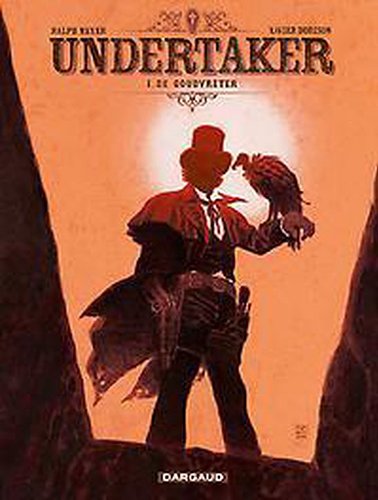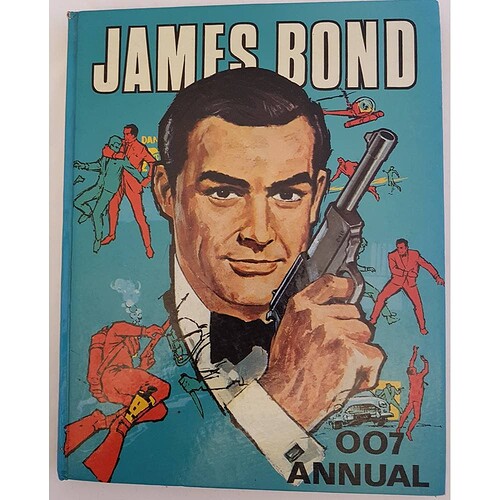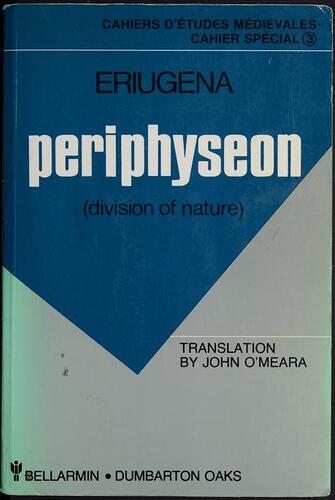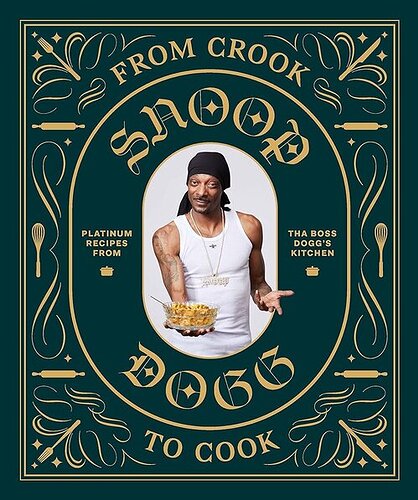Looks interesting , Harm.
We have the same system in the UK of course and I always find myself torn between deploring the idea of the undemocratic privilege of it all and the horror of who seems to continually get voted in as presidents in other systems. Queen Elizabeth or Donald Trump? Well, you get the picture
I think it is obscene, and medieval in nature. But, whereas medieval kings actually ruled, these people do absolutely nothing and are accountable for nothing. I’m not a connoisseur of the British royals, so I can’t really comment on that, but the Dutch royals do/did absolutely nothing, excerpt reveling in numerous scandals. And fleeing at wartime, of course.
At least Trump, or any other president, can be sent away via the democratic process.
Finally getting through Alice’s Adventures in Wonderland. Been way too long without reading it.
Reading Blood for a Dirty Dollar… Finally got all the Dollars tie in books again
Always wanted to read those, they look super fun.
Just started on The first James Bond Omnibus…I’m going back to the beginning and reading ‘Casino Royale’, courtesy of the ‘Daily Express’ comic strips.
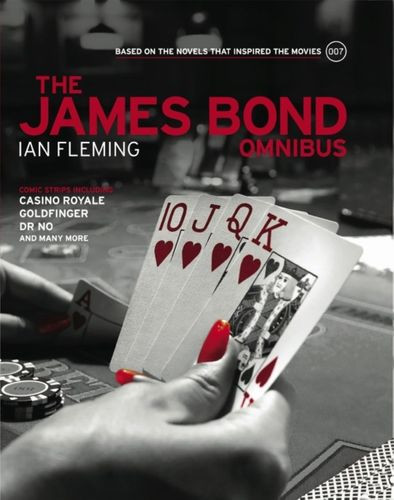
Going to start Million Dollar Blood Hunt tonight, and then hopefully the Fistful of Dynamite tie in tomorrow
Started Lonesome Dove recently, super fun novel so far. The characters simultaneously feel fleshed out while still conforming to some typical cowboy stereotypes. Highly recommend for anyone into American Westerns.
I’ve had this safely stored away for years now…I think I got it for pennies originally, perhaps from a car boot sale.
Thought it was time now to re-visit some Bond nostalgia, which was first printed in 1965; around the time of the Sixties’ most commercially successful 007 adventure, ‘Thunderball’.
Same with ‘The Man From Uncle’ annual (below). Time now to carefully leaf through it for the first time in years…

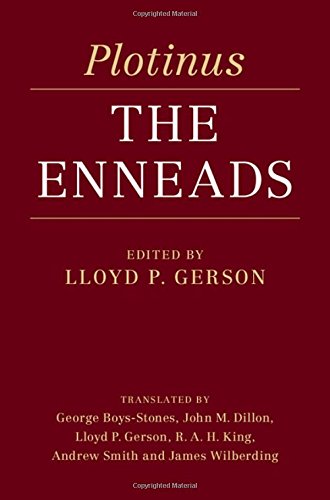
Haven’t read myself, but heard he’s excellent. I should check him out if I ever get around to Greek philosophy.
Man, these old paperbacks are so much fun. Love blasting through one on a weekend.
I just finished reading The Sisters Brothers by Patrick deWitt. Bought it for 0,5€. A well written novel and an interesting story. Didn’t get bored for a single moment while reading but the main characters, Eli and Charlie Sisters, were so damn unlikable, at least in my opinion
And before anyone asks, I haven’t seen the film adaptation and don’t feel like watching it either
You’re not missing much … a big disappointment for me, because both leading actors are usually in above average / interesting films. This never really gets going.
I also have a sense that the book and film got made because of the jokey title … which isn’t that clever or amusing.
Re-reading my favorite book tonight Blood Meridian. My personal favorite novel, if anyone else has any western book recs I’d love to hear them!
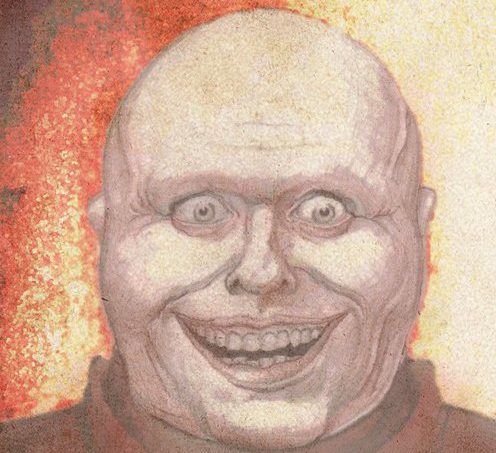
Interesting choice @Mickey13, what do you think of it?
It is certainly pretty unique and as the wikipedia entry says, it very much feels like the final achievement of ancient philosophy and the beginning of scholasticism (if we exclude Boethius that is). Eriugena is fascinating in that he was able to recover much of the Neoplatonism from secondary sources, namely the Proclean metaphysics from Pseudo-Dionysius and the Plotinian metaphysics from Augustine as well as Maximus the Confessor, there are some echoes of Plato’s Timaeus and Aristotle’s Categories too. Not only does he accurately recontruct the principal tenets with all of their nuances, but also expands upon them in a pretty spectacular fashion; for instance, the fragment relating to ousia, quality and quantity being above all other categories is almost worthy of Plato himself and there is a certain lucidity about his train of thought which is sometimes hard to find in Plotinus for example, whose line of argument occasionally turns out somewhat abstruse.
On the other hand though, Eriugena might be somewhat tough to approach in virtue of the very distinct vocabulary and metaphysical scheme forced upon him by Proclus through Pseudo-Dionysius. Though Plotinus intimated as much on a couple of occasions, Proclus was apparently the first of Neoplatonists to expressedly place the One beyond all being which was subsequently deemed as an unwarranted innovation by some of his successors: the criticism was specifically levelled by Damascius who in turn essayed to champion Iamblichus in his stead. At any rate, what with the One totally transcending all being, one has to resort to a metaphorical language intended to reflect the One’s absolute transcendence going beyond all opposites (all beings have opposites and no being having a proper opposite can be properly predicated of the One), emanations and dialectics. Since no concrete properties extrapolated or abstracted from the realm of phenomena can be predicated of the One, one must have recourse to the metaphorical, apophatic language so as to arrive at the proper investigation into the nature of the One. This likewise finds expression in the fourfold division of Nature which outlines the process of all things issuing from the (supra-)source and reverting back to it (the descent and ascent being inextricably intertwined and one, again following Proclus). The One transcends all being and non-being, constitutes the genesis and consummation of all being and can only be described figuratively as a sort of supra-being of which all other beings partake in some sense.
This thick metaphorical layer means reading Eriugena feels like reading poetry and it is extremely easy to misread or misrepresent his worldview. Apparently, Hegelian scholars cast him as some sort of precursor of Hegel’s thought, but this can only be admitted when the entire edifice of Proclus’s metaphysics is entirely removed and discarded. Though Eriugena argues at one point that following the stage of non-being or indeterminacy (apeiron?), the One proceeds to “create” itself by dispensing being to creatures which in turn partake of its supra-being in time, this is clearly meant in the Maximian Imago Dei sense and not in the processual, immanentist, Hegelian sense given Eriugena staunch espousal of exemplarism, which plays a central role in the overall framework, the undeniably atemporal process of emanation and the very specific application of the terms “being” and “non-being” within the context of the work. Also, the certain inevitability of being effusing out of the One derives originally from Plotinus and is not proto-Hegelian at all either. Some of the specious similarities might arise from the fact that Hegel availed himself of Proclus’s texts in order to consult the Neoplatonist doctrine uncorrupted by the Aristotelean influence, which was his primary gripe with Plotinus, so he ends up using a lot of the similar jargon, but with a wholly different intention in mind. Hence, in spite of all the idiosyncrasies, Eriugena is still essentially a Neoplatonist, though the intricate vocabulary, the varied usage of being, non-being and supra-being depending on the gradation of the discussed reality/“nature” and the heavy baggage of the Proclean tenets necessitate that the reader must absorb the entirety of it in the aforementioned context in order to grasp it in accordance with the author’s intentions.
I really wanted to make this shorter, but summarizing Eriugena in just a few paragraphs is really hard and is likely to turn out somewhat inscrutable, but I guess I tried my best.
